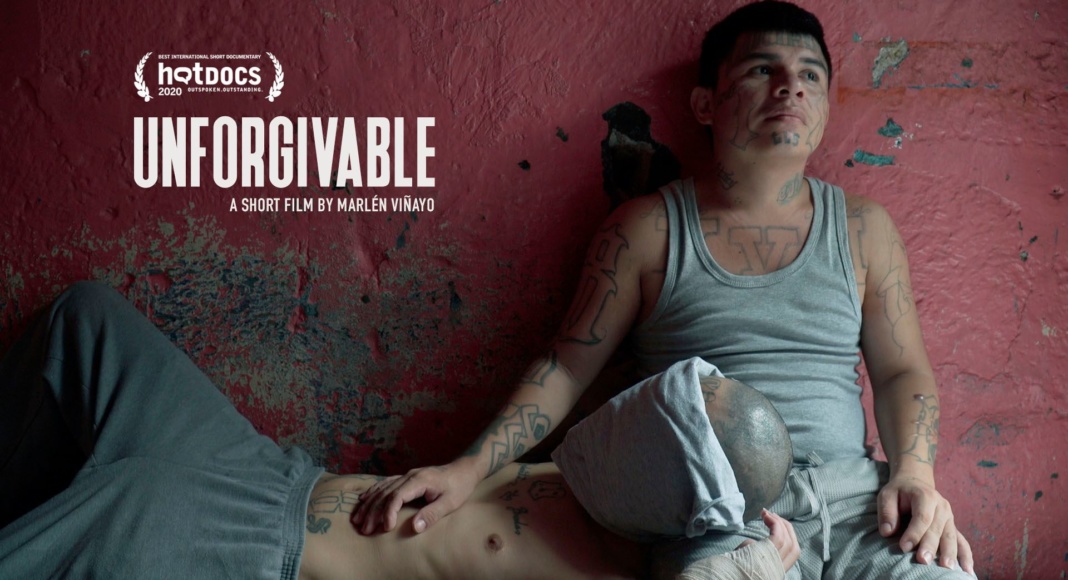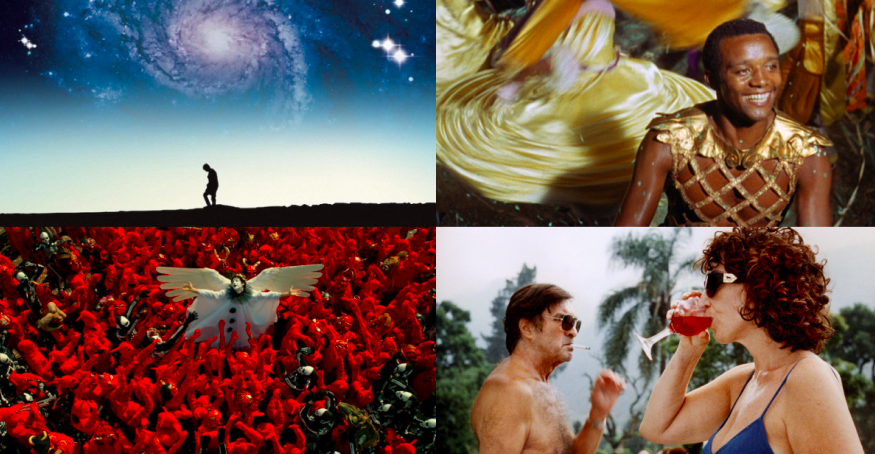Directed by Marlén Viñayo and co-produced by Salvadorean independent newspaper El Faro and documentary production company Jaula Abierta, Imperdonable is a compelling work that condemns the hegemonic model of masculinity in El Salvador. Exposing us to the link between gangs and Evangelical churches, this film explores how men must not only grapple with the expectation for them to demonstrate masculinity through control and violence, but also the personal hell they fall into when their sexuality and religion clash.
The short film follows Geovany, a former hitman of the ruthless 18th Street gang who faces his sentence in San Francisco Gotera, a prison converted to Evangelicalism. Its emphasis on personal transformation has seen Catholicism rapidly displaced with over half of Salvadoran gang members now identifying as Evangelicals. Since recognising his homosexuality and meeting his partner Steven, Geovany has been kept in an isolation cell with eight other inmates. The narrative revolves around his attempt to be transferred out of Gotera because of the Church’s dominance, and the couple’s fear of being separated.
Imperdonable opens with close-ups of the prisoners’ scars and tattoos, overlaid with gruesome descriptions of the crimes Geovany committed while in the gang. What’s striking is Geovany’s calm tone and, in places, endearing, tender behaviour as he downplays murder as ‘bad, but not that difficult’; whereas for gangs and their members being gay is far more ‘unnatural.’ Brutal ideas of what it means to be a ‘real man’ are juxtaposed with scenes of the men sewing, quietly embracing, and flicking through a fashion magazine longing for feminine outfits.
Steven, who is even more religious and conflicted, fears he will ‘eat buckets of fire in hell’ for the daily affection he shows another man. Director Viñayo’s touching cinematography urges us to wonder, ‘How can a country’s moral compass be so broken that homosexuality and murder feel the same?’
In doing so, Viñayo promotes national and international dialogue about El Salvador’s toxic, self-limiting definition of masculinity, demanding the humanisation of those marginalised and shunned by the State.
Viñayo’s touching cinematography urges us to wonder, ‘How can a country’s moral compass be so broken that homosexuality and murder feel the same?
The Northern Triangle of Central America has the highest reported rates of murders against LGBT people in the world, and under President Nayib Bukele, there really is no safe haven. Last December, he implemented an agreement enabling US immigration authorities to transfer non-Salvadoran asylum seekers to El Salvador, instead of allowing them to seek asylum in the US, leaving them at risk of serious harm.
After a successful presidential campaign, pledges to support LGBT rights turned out to be all smoke and mirrors. Although El Salvador has laws that qualify certain offences as hate crimes, there doesn’t seem to be evidence of convictions for hate crimes against LGBT people.
Viñayo promotes national and international dialogue about El Salvador’s toxic, self-limiting definition of masculinity, demanding the humanisation of those marginalised and shunned by the State.
Imperdonable highlights the misogynistic and homophobic patterns of masculinity that gangs adopt – an attitude reflected throughout society. This leaves El Salvador trapped in a vicious cycle, where the gangs feed off society’s macho notion of identity and society feeds off the gangs’.
As we become familiar with the characters, the cruel sentiments from the beginning of the film soften. In focusing on Geovany and his relationship with Steven, we see that not all men benefit from patriarchy. Although it is difficult to know how we feel for them, we at least learn what’s behind their crimes and their sexuality.
Viñayo does not attempt to redeem the subjects but shows us the necessity of acceptance. Imperdonable expresses hope for a society that can better understand the complex nuances of masculinity.
Imperdonable is showing until Friday 16 April as part of CinemaAttic’s LADS: Toxic Masculinity film festival, within a programme of ten international short films seeking to expose patterns of masculinity and offer alternative views on how men are dealing with manhood today.
You can watch the films here.


